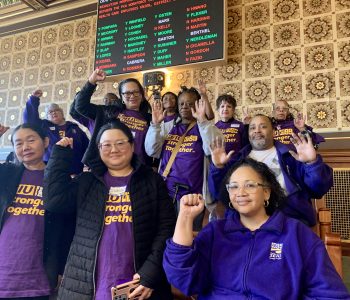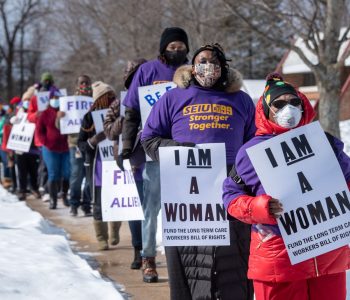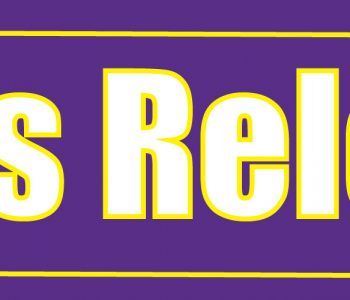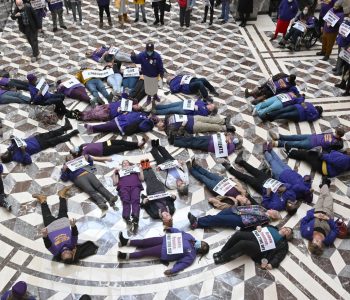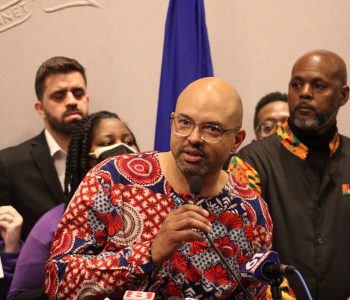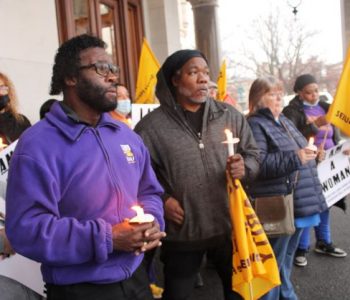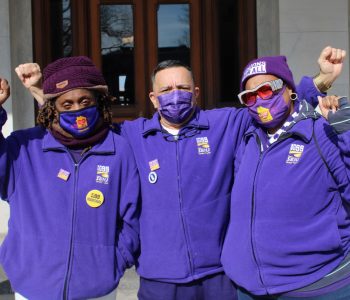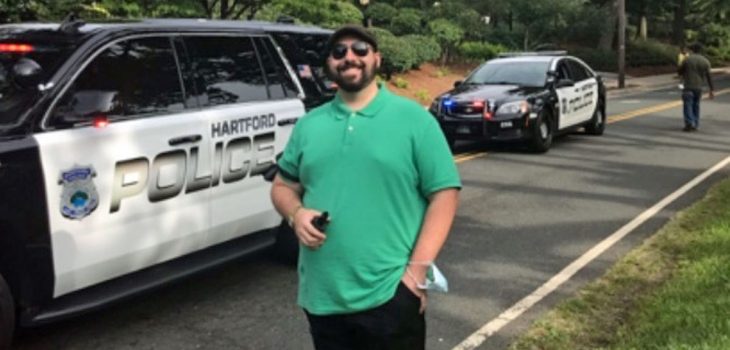 Home Care
Home Care
Jordan DeAngelo tested positive for COVID-19 on Sept. 23, one week before paid time off for pandemic-related illnesses for personal care assistants, known as home care workers, ran out.
Since Sept. 30, DeAngelo and thousands of other PCAs represented by the New England Health Care Employees Union who care for medically fragile adults in their own homes do not have paid sick time off if they contract COVID-19.
DeAngelo’s request for sick pay is now in limbo, he said, because he was told that Allied Community Resources, the company paid by the state Department of Social Services to deal with the PCA payroll, didn’t receive his paperwork by the Sept. 30 deadline.
“It’s very frustrating,” said DeAngelo, who insisted that he submitted his sick time paperwork on time. “You try to do everything right and you are still told, ‘No.’ I think it’s absolutely ridiculous, whether or not I had to deal with it, that they have a deadline that expired. They should extend it until we get some sort of normalcy back.”
Allied Community Resources did not respond to a request for comment Tuesday afternoon.
DSS spokesman David Dearborn said the agency is still processing sick time and DeAngelo’s request can still be considered if he is deemed eligible. “It’s my understanding that we are continuing to process applications for PCAs who met the qualifications for sick pay prior to the expiration of the federal benefit and who provide the necessary documentation,” Dearborn said.
But any move to extend the deadline and allow COVID-related sick time to continue would be subject to contract negotiations, Dearborn said.
The workers have been calling on Gov. Ned Lamont, DSS and the Department of Developmental Services to hammer out a contract that includes a path to $20 an hour, affordable health care, paid sick and vacation time and reasonable retirement benefits, union officials said.
But the workers are in a tough bargaining position. If they were to strike, they would leave their clients without safe care and they have no workplace where they can picket other than their client’s homes.
In the meantime, the Sept. 30 deadline is impacting 10,000 PCAs who receive no benefits, union officials said.
“We have no bargaining dates, we have no agreement and now we have little access to COVID-related paid time off,” said Diedre Murch, home care director and vice president of the union. The lack of paid sick time is forcing people to choose paying the rent over their health – or potentially the health of their clients, Murch said.
“There are already so few safeguards for these workers,” Murch said. “They don’t get health care, they have no paid time off and now they have lost access to the only sick time they’ve had for the past 17 months.”
The COVID-19 sick pay was funneled through the state agencies from the federal Families First Coronavirus Response Act in April 2020 and then extended through the American Rescue Plan Act which was signed in March.
Under both pandemic relief programs, clients who hire PCAs with DSS or DDS money were eligible to have their PCAs receive two weeks, or 80 hours, of paid COVID-19 sick time if they contracted the virus or needed to care for family members who did. DDS provided 303 instances of paid sick leave for PCAs and DSS provided 562 instances of paid sick leave for PCAs under the COVID-19 sick time program since April 2020.
DeAngelo said he began to feel sick on Sept. 21 and was notified that he had tested positive for COVID-19 on Sept. 23. He is his mother’s primary caregiver, paid by the state for 40 hours a week, even though it’s a 24-hour-a-day job, he said.
DeAngelo couldn’t interact with his mother while he had the virus, so he had to go into another room if she needed to be in the room where he was isolating. Another part-time PCA saw to her needs until it was safe for him to resume taking care of her, he said.
He started back wearing an N-95 mask and face shield, just in case, he said.
DeAngelo requested 40 hours of sick pay, which would have fallen within the deadline since he tested positive on Sept. 23. “It boggles the mind that one minute they call us heroes and the next we can’t even get sick pay,” DeAngelo said. “It really annoys me because I know I’m not the only person going through this.”
